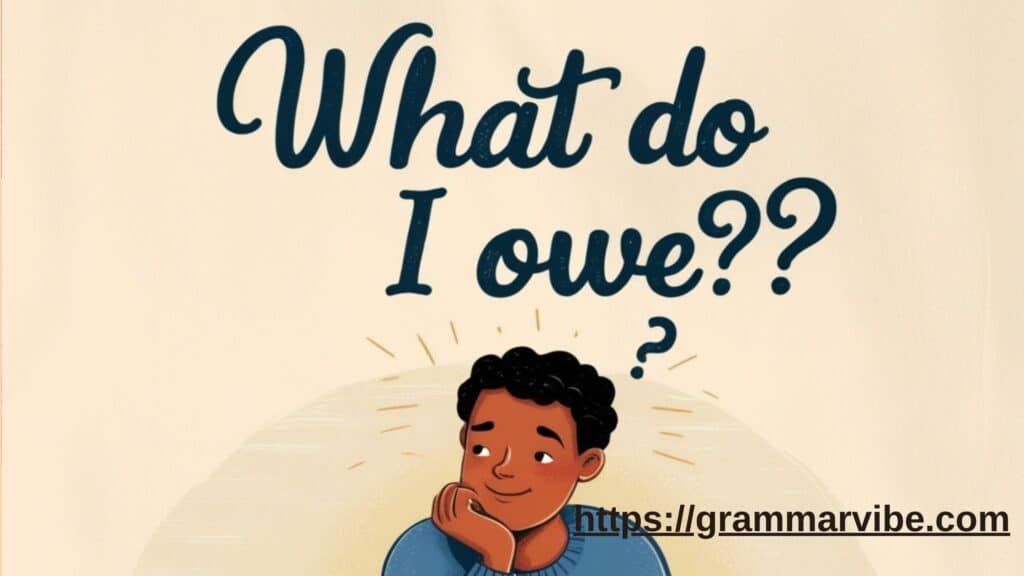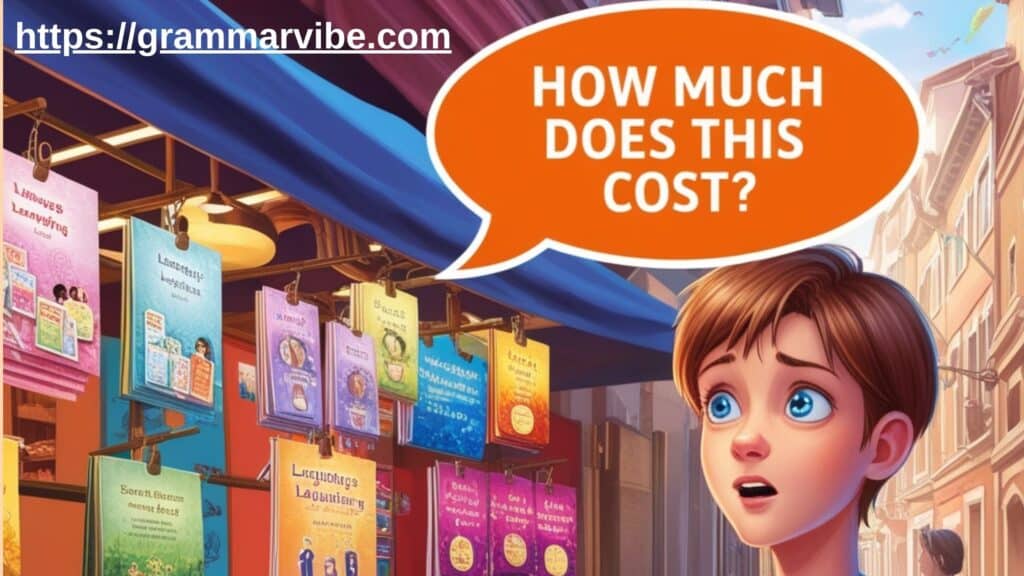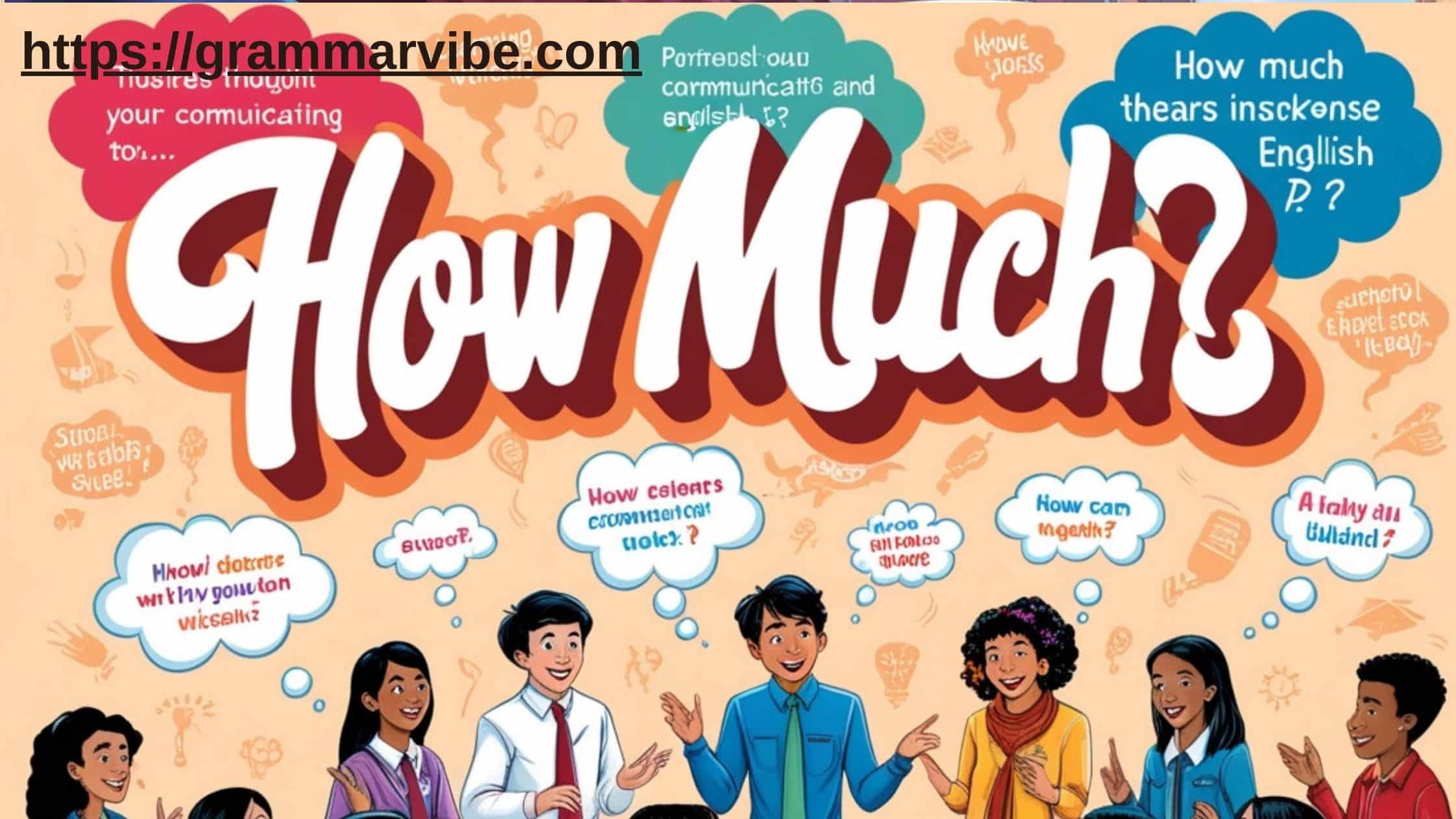Asking “How much?” is an essential part of daily conversations, whether you’re shopping, dining out, or making a business transaction. However, repeating the same question can sound repetitive and less engaging. Luckily, there are plenty of other ways to ask about the price, cost, or charge of an item or service. By expanding your vocabulary, you can communicate more clearly and even add a bit of personality to your inquiries.
Here, we’ll explore 15 alternative ways to ask about the price, with example scenarios for each. By using these alternatives, you can keep your conversations fresh, polite, and effective, whether you’re in a casual setting or professional environment.
1. What’s the Cost?
One of the most direct ways to inquire about price is to ask, “What’s the cost?” This phrase is perfect for situations when you need clear and straightforward information.
Scenario Example:
If you’re looking for a contractor for a home renovation, you might say, “Can you break down the project for me so I know what’s the cost for each phase?” This helps ensure you understand each part of the project and its financial implications.
2. Can You Tell Me the Price?
This phrase is slightly more formal than “How much?” and conveys respect for the other person. It’s a great choice when you want to sound polite without being overly casual.
Scenario Example:
When you’re browsing through a jewelry store, you could ask, “Can you tell me the price of this necklace?” It shows you’re interested but not rushing the vendor.
3. What Do I Owe?

This expression is useful after receiving a service. It’s commonly used in restaurants or after completing a transaction.
Scenario Example:
At a café after finishing your coffee, you might say, “What do I owe?” when you’re ready to pay, signaling you’re ready to complete the financial transaction.
4. How Much Does It Come To?
This phrase works well when you’re asking for the total payment amount, especially after purchasing multiple items or services.
Scenario Example:
After adding several items to your cart at an electronics store, you might ask, “How much does it come to?” to get the total cost of your purchases.
5. What’s the Charge?
This expression is especially useful when you’re talking about service charges or fees. It’s formal and suitable for both business transactions and service-oriented businesses.
Scenario Example:
When visiting a doctor’s office for a consultation, you could ask, “What’s the charge for today’s visit?” to clarify the amount you need to pay.
More for you: 15 Other Ways to Say “Nice to E-Meet You”
6. What Will That Set Me Back?
If you’re looking for a more light-hearted way to inquire about cost, this phrase is perfect. It suggests that you’re expecting a price but want to know if it will be a significant expense.
Scenario Example:
After seeing a sleek new laptop at an electronics store, you might jokingly ask the salesperson, “What will that set me back? I hope it’s within budget!”
7. How Much Is This Going For?
This question is often used in informal settings like markets, garage sales, or in sales environments. It suggests that there may be room for negotiation.
Scenario Example:
When at a flea market, you might inquire about a vintage record, saying, “How much is this going for?” This allows the vendor to provide a price while also leaving room for haggling if needed.
8. What’s the Rate?
This is a great phrase when you need to inquire about pricing based on units or time, such as in hourly rates or for professional pricing.
Scenario Example:
If you’re hiring a freelance designer, you could ask, “What’s the rate for your graphic design services?” to understand the cost of their work on an hourly or project basis.
For your interest: 15 Other Ways to Say “I Look Forward to Speaking With You”
9. Could You Quote the Amount?
When you need an official estimate or formal request for a price, this phrase is ideal. It’s commonly used in business transactions and negotiations.
Scenario Example:
You could say to a caterer, “Could you quote the amount for serving 50 guests?” This ensures you get a precise and formal estimate for the event.
10. What’s the Financial Damage?
This expression is light-hearted and often used among friends or in informal settings. It humorously refers to how much something will cost, usually with a playful tone.
Scenario Example:
After a shopping spree with a friend, you might ask, “What’s the financial damage? Did we go overboard?” This adds some humor while still inquiring about the total amount.
11. What’s the Price?
This is the simplest and most straightforward way to ask about cost. It’s useful in almost every situation where you want to know the price of an item or service.
Scenario Example:
If you’re looking to buy a new jacket at a department store, you could ask the salesperson, “What’s the price of this jacket?”
You might also like: 15 Other Ways to Say “How Is Your Day Going?”
12. What’s the Total Cost?
When you’re looking for the total amount to be paid, especially after purchasing several items or services, this is a helpful and precise way to ask.
Scenario Example:
After gathering a few items in your shopping cart, you might ask the cashier, “What’s the total cost of these items?” This ensures you know the overall price before paying.
13. How Much Does This Cost?

This is another direct way to inquire about cost and is interchangeable with “How much?” It’s both simple and effective for price inquiries.
Scenario Example:
While shopping for a new phone, you might ask, “How much does this cost?” as you point to the item you’re interested in.
14. Could You Tell Me the Charge for This?
When you’re dealing with service-oriented businesses like hotels, hair salons, or even taxis, this question helps you clarify the cost of a specific service.
Scenario Example:
At a hotel, you could say, “Could you tell me the charge for the breakfast buffet?” to understand the pricing for the extra service.
Check out this: 15 Other Ways to Say “I Agree with You” Formally
15. How Much Is This Going to Cost Me?
A more casual variation of asking for the price, this phrase also conveys the idea of total payment expected for a service or product.
Scenario Example:
When booking a flight, you might say, “How much is this going to cost me?” to get the final total, including taxes and fees.
Summary Table: 15 Ways to Ask “How Much?”
| Phrase | Use Case | Example Scenario |
|---|---|---|
| What’s the cost? | Direct inquiry | “What’s the cost of this contract?” |
| Can you tell me the price? | Polite, formal inquiry | “Can you tell me the price of this painting?” |
| What do I owe? | Used after a service | “What do I owe for the meal?” |
| How much does it come to? | Total cost inquiry | “How much does it come to for these two items?” |
| What’s the charge? | Used for service fees | “What’s the charge for this consultation?” |
| What will that set me back? | Informal, light-hearted | “What will that set me back for the trip to the Bahamas?” |
| How much is this going for? | Informal, market settings | “How much is this going for at the flea market?” |
| What’s the rate? | Hourly or unit-based pricing | “What’s the rate for your legal services?” |
| Could you quote the amount? | Formal, business inquiry | “Could you quote the amount for the repairs?” |
| What’s the financial damage? | Casual, humorous inquiry | “What’s the financial damage after that shopping spree?” |
| What’s the price? | Direct and simple | “What’s the price for a single ticket?” |
| What’s the total cost? | Total cost inquiry | “What’s the total cost of my groceries?” |
| How much does this cost? | Standard cost inquiry | “How much does this cost at the register?” |
| Could you tell me the charge? | Service-oriented businesses | “Could you tell me the charge for parking?” |
| How much is this going to cost me? | Total payment inquiry | “How much is this going to cost me after discounts?” |
Conclusion
Inquiring about cost doesn’t have to be monotonous. By using these 15 alternative phrases, you can make your communication more engaging, appropriate, and tailored to your situation. Whether you’re in a professional setting or having a casual conversation, varying your language will make your requests clearer and more effective.
These alternative phrases can also help you express curiosity and professionalism while avoiding repetitive questions. Try them out next time you need to ask about the cost or price of something and watch your conversations become more dynamic!

Kyren Paul is an experienced blogger and the creative mind behind “Grammar Vibe.” With a passion for the nuances of English grammar, he brings clarity and insight to everyday language topics, making grammar accessible and engaging for readers of all levels.











Leave a Comment